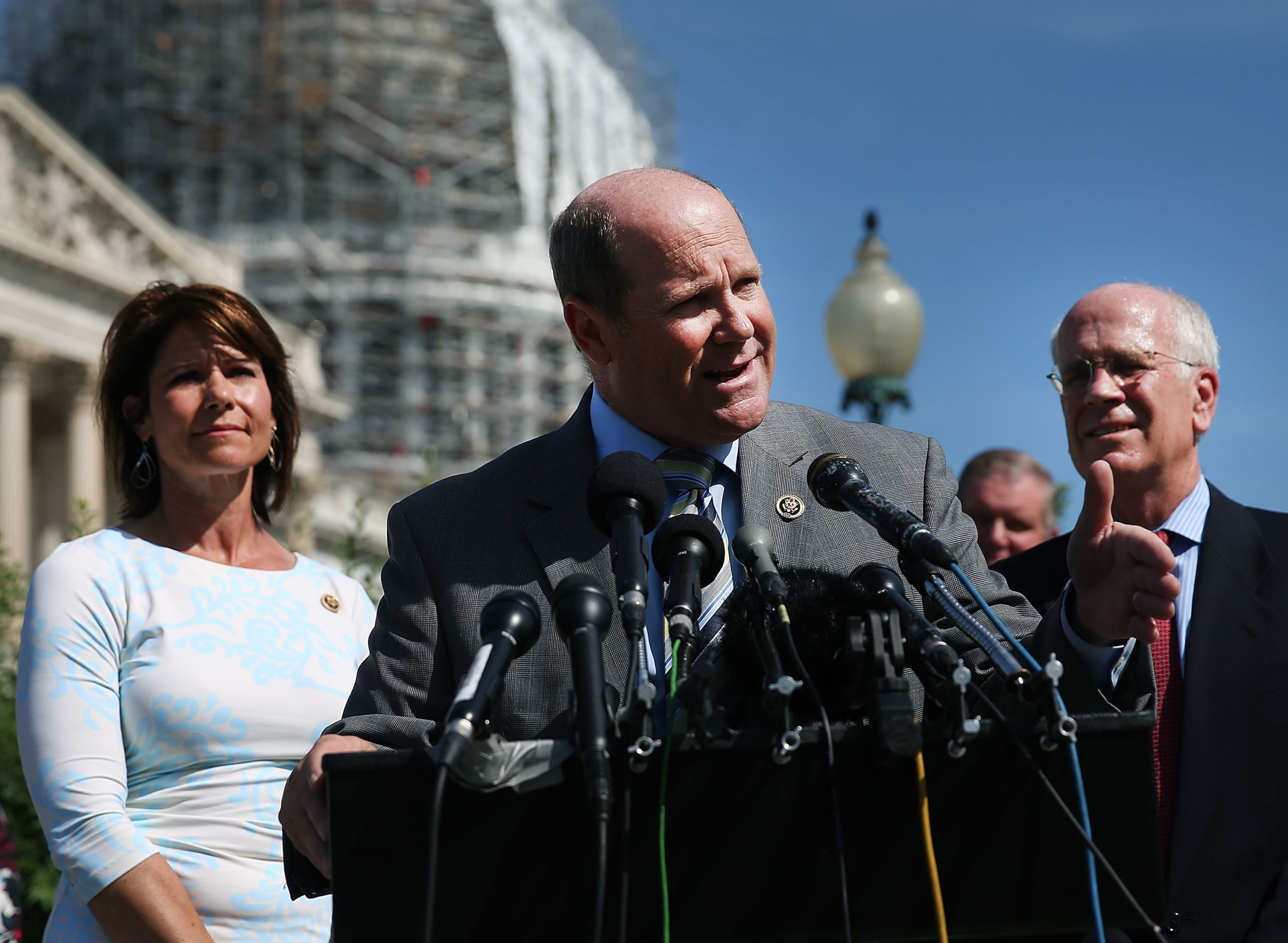As members of Congress from across the political spectrum pledge not to reform entitlements, economists warn that doing so is the only effective way to cut down on federal debt.
Congress will need to raise the debt ceiling by July to avoid defaulting on the nation’s debt, and Republicans from across the party insist that they will only vote to do so in exchange for future spending cuts. The federal debt broke $31 trillion in October 2022, and the Social Security Trust Fund is expected to go insolvent by 2034. Even though entitlements like Social Security, Medicare, and Medicaid made up 46% of the federal budget in 2022, according to the Center on Budget and Policy Priorities, Speaker of the House Kevin McCarthy and President Joe Biden have taken cuts to those programs off the table.
“I think a hard cold reality that Republicans face right now is that this is a looming crisis and the persistent rhetoric that we will not touch Social Security and Medicare is folly,” Florida Gulf Coast University economics professor and Acton Institute scholar Victor Claar told the Daily Caller. Entitlement debt will only grow, he added, since “Americans are living longer and drawing more benefits than they have in the past, and we’ve seen a demographic shift. Baby boomers are entering retirement and there just aren’t as many Americans to fund retirees.”
Nevertheless, McCarthy and Biden agree that Social Security and Medicare will not be amended as part of a debt ceiling deal. While Biden and congressional Democrats are pushing for a debt ceiling increase without cuts, Republicans argue that they can significantly decrease spending by eliminating waste and fraud, and cutting domestic spending. (RELATED: Trump Says GOP Should Not Cut Social Security As Part Of Spending Deal)
“We’re not going to touch the benefits that are going to people relying on the benefits under Social Security and Medicare,” Republican Texas Rep. Chip Roy said.
If Congress does not amend Social Security, the program’s trust fund will be exhausted by 2034, according to the Social Security Administration. Then, retired Americans would see their Social Security checks cut by 25%, according to the Committee for a Responsible Federal Budget (CRFB). Ensuring beneficiaries receive their checks at current levels would require Congress to legislate aggressively, CRFB economist Marc Goldwein told the Daily Caller.
“I don’t respect the perspective that we’re not going to touch Social Security and Medicare,” Goldwein said. “We need to make changes to reform these programs. The easy way out would be to borrow from other parts of the government, but it undermines the self-financed nature of these programs. Medicare is the easier one because there is so much waste in the current Medicare program.”
“There is not a lot of waste in Social Security. There is not a place where you can significantly reduce costs without reducing benefits,” he continued, adding that the GOP promise to combat waste, fraud, and abuse “depends on what you mean by waste. The kind of waste we’re going to see cut is the kind that others view as a benefit.”
Amid the 2013 debt ceiling standoff, then-congressman Reid Ribble proposed raising Social Security’s retirement age, means-testing benefits, and raising the amount of payroll taxes that go into the trust fund. He introduced legislation in 2016 that would phase in those changes and extend the entitlement’s shelf life by 75 years, although the Save Our Social Security Act did not pass the House. Ribble’s colleagues met his plan with “fear,” he told the Daily Caller.

WASHINGTON, DC – JULY 10: Rep. Reid Ribble (R-WI) (C) speaks about highways while flanked by Rep. Peter Welch (D-VT) (R) speaks while flanked by Rep. Cheri Bustos (D-IL) (L) during a news conference on Capitol Hill July 10, 2015 in Washington, DC. (Photo by Mark Wilson/Getty Images)
“Both sides had to give up a sacred cow. For Republicans, they had to accept more revenue by moving the cap up. For Democrats, they had to accept slowly moving up the full retirement age up but not moving the early age beyond 62,” Ribble explained. “Republicans in the House wanted only the fixes that changed the underlying benefits. Democrats mainly wanted to raise taxes to whatever level was needed. Neither one of those options is politically feasible.”
Goldwein recommends means-testing Social Security and raising the retirement age, in addition to expanding the types of taxes that pay in to the Social Security Trust Fund. Even mentioning such changes is difficult, however, “since both parties immediately seek to demagogue the issue the minute it’s brought up,” Ribble explained. (RELATED: Joy Reid Blows Fuse, Blurts ‘That’s Not True’ 13 Times Straight As Rep. Donalds Breaks Down Social Security Solvency)
“We saw this happen in real time over the last few weeks. All Republicans have said was entitlements are the primary driver of the debt, so they should be included in discussions about the debt. The Democrats immediately, from the president to members of Congress, accused them of wanting to cut Social Security. That is a dishonest approach. But it is a time-tested, proven one. It’s quite sad really,” he continued.
Claar, Goldwein, and Ribble disagree with using the debt ceiling vote to force entitlement reform. However, they all noted that Congress has kicked the can down the road too many times on the issue. Claar emphasized that the U.S. government’s credit rating could be put at risk if Social Security does not pay out in full. Credit agencies have downgraded government credit only once before, during the 2011 debt ceiling standoff.
“Any time there is a risk of defaulting on existing debt, that puts in peril the good faith of investors who put faith in our economy,” Claar said.
“You know what’s really fun? Delivering tax cuts or offering a new government program,” Goldwein added. “The reality is we’re spending way beyond our means, and we have to do the not fun thing.”


